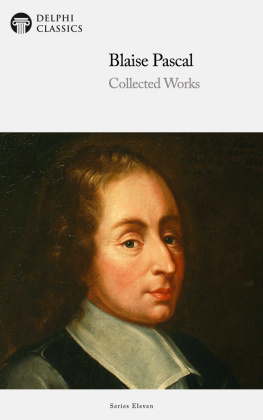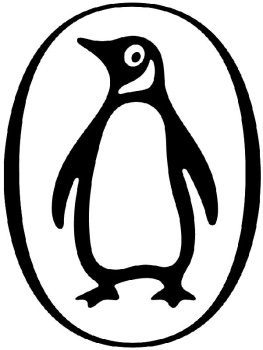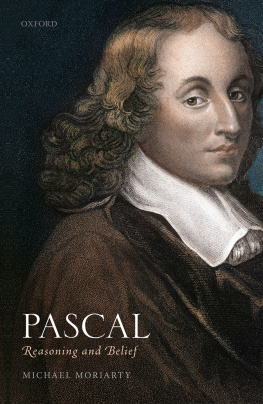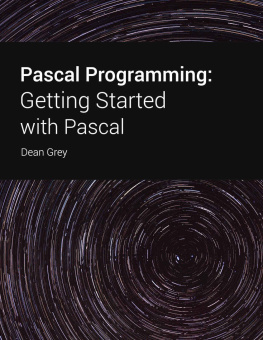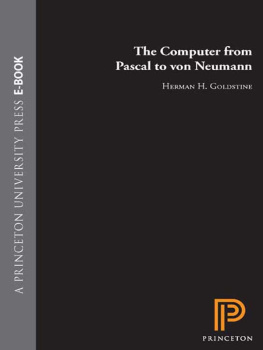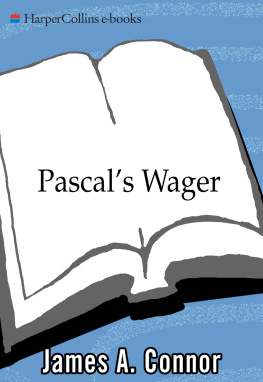Blaise Pascal - Human Happiness
Here you can read online Blaise Pascal - Human Happiness full text of the book (entire story) in english for free. Download pdf and epub, get meaning, cover and reviews about this ebook. publisher: Penguin Books Ltd, genre: Science. Description of the work, (preface) as well as reviews are available. Best literature library LitArk.com created for fans of good reading and offers a wide selection of genres:
Romance novel
Science fiction
Adventure
Detective
Science
History
Home and family
Prose
Art
Politics
Computer
Non-fiction
Religion
Business
Children
Humor
Choose a favorite category and find really read worthwhile books. Enjoy immersion in the world of imagination, feel the emotions of the characters or learn something new for yourself, make an fascinating discovery.

- Book:Human Happiness
- Author:
- Publisher:Penguin Books Ltd
- Genre:
- Rating:5 / 5
- Favourites:Add to favourites
- Your mark:
- 100
- 1
- 2
- 3
- 4
- 5
Human Happiness: summary, description and annotation
We offer to read an annotation, description, summary or preface (depends on what the author of the book "Human Happiness" wrote himself). If you haven't found the necessary information about the book — write in the comments, we will try to find it.
Human Happiness — read online for free the complete book (whole text) full work
Below is the text of the book, divided by pages. System saving the place of the last page read, allows you to conveniently read the book "Human Happiness" online for free, without having to search again every time where you left off. Put a bookmark, and you can go to the page where you finished reading at any time.
Font size:
Interval:
Bookmark:
Blaise Pascal
16231662
Blaise Pascal
TRANSLATED BY A . J . KRAILSHEIMER
PENGUIN BOOKS GREAT IDEAS
PENGUIN BOOKS
Published by the Penguin Group
Penguin Books Ltd, 80 Strand, London WC2R 0RL , England
Penguin Group (USA) Inc., 375 Hudson Street, New York, New York 10014, USA
Penguin Group (Canada), 90 Eglinton Avenue East, Suite 700, Toronto, Ontario, Canada M4P 2Y3
(a division of Pearson Penguin Canada Inc.)
Penguin Ireland, 25 St Stephens Green, Dublin 2, Ireland
(a division of Penguin Books Ltd)
Penguin Group (Australia), 250 Camberwell Road, Camberwell, Victoria 3124, Australia
(a division of Pearson Australia Group Pty Ltd)
Penguin Books India Pvt Ltd, 11 Community Centre, Panchsheel Park, New Delhi 110 017, India
Penguin Group (NZ), 67 Apollo Drive, Rosedale, North Shore 0632, New Zealand
(a division of Pearson New Zealand Ltd)
Penguin Books (South Africa) (Pty) Ltd, 24 Sturdee Avenue, Rosebank, Johannesburg 2196, South Africa
Penguin Books Ltd, Registered Offices: 80 Strand, London, WC2R 0RL , England
www.penguin.com
This translation first published as a Penguin Classic 1966
Revised edition first published 1995
This selection first published 2008
Translation A. J. Krailsheimer 1966, 1995
All rights reserved
The moral right of the translator has been asserted
Except in the United States of America, this book is sold subject to the condition that it shall not, by way of trade or otherwise, be lent, re-sold, hired out, or otherwise circulated without the publishers prior consent in any form of binding or cover other than that in which it is published and without a similar condition including this condition being imposed on the subsequent purchaser
ISBN: 978-0-14-196412-6
In this selection of extracts the numbering system for the individual penses is that used in the Penguin Classics edition.
21 If we are too young our judgement is impaired, just as it is if we are too old.
Thinking too little about things or thinking too much both make us obstinate and fanatical.
If we look at our work immediately after completing it, we are still too involved; if too long afterwards, we cannot pick up the thread again.
It is like looking at pictures which are too near or too far away. There is just one indivisible point which is the right place.
Others are too near, too far, too high, or too low. In painting the rules of perspective decide it, but how will it be decided when it comes to truth and morality?
22 Flies are so mighty that they win battles, paralyse our minds, eat up our bodies.
23 Vanity of science. Knowledge of physical science will not console me for ignorance of morality in time of affliction, but knowledge of morality will always console me for ignorance of physical science.
24 Mans condition. Inconstancy, boredom, anxiety.
25 The fact that kings are habitually seen in the company of guards, drums, officers and all the things which prompt automatic responses of respect and fear has the result that, when they are sometimes alone and unaccompanied, their features are enough to strike respect and fear into their subjects, because we make no mental distinction between their person and the retinue with which they are normally seen to be associated. And the world, which does not know that this is the effect of habit, believes it to derive from some natural force, hence such sayings as: The character of divinity is stamped on his features.
26 The power of kings is founded on the reason and the folly of the people, but especially on their folly. The greatest and most important thing in the world is founded on weakness. This is a remarkably sure foundation, for nothing is surer than that the people will be weak. Anything founded on sound reason is very ill-founded, like respect for wisdom.
30 We do not choose as captain of a ship the most highly born of those aboard.
31 We do not care about our reputation in towns where we are only passing through. But when we have to stay some time we do care. How much time does it take? A time proportionate to our vain and paltry existence.
33 What amazes me most is to see that everyone is not amazed at his own weakness. We behave seriously, and everyone follows his calling, not because it is really a good thing to do so, in accordance with fashion, but as if everyone knew for certain where reason and justice lie. We are constantly disappointed and an absurd humility makes us blame ourselves and not the skill we always boast of having. But it is a good thing for the reputation of scepticism that there are so many people about who are not sceptics, to show that man is quite capable of the most extravagant opinions, since he is capable of believing that he is not naturally and inevitably weak, but is, on the contrary, naturally wise.
36 Anyone who does not see the vanity of the world is very vain himself. So who does not see it, apart from young people whose lives are all noise, diversions, and thoughts for the future?
But take away their diversion and you will see them bored to extinction. Then they feel their nullity without recognizing it, for nothing could be more wretched than to be intolerably depressed as soon as one is reduced to introspection with no means of diversion.
42 How many kingdoms know nothing of us!
43 A trifle consoles us because a trifle upsets us.
44 Imagination. It is the dominant faculty in man, master of error and falsehood, all the more deceptive for not being invariably so; for it would be an infallible criterion of truth if it were infallibly that of lies. Since, however, it is usually false, it gives no indication of its quality, setting the same mark on true and false alike.
I am not speaking of fools, but of the wisest men, amongst whom imagination is best entitled to persuade. Reason may object in vain, it cannot fix the price of things.
This arrogant force, which checks and dominates its enemy, reason, for the pleasure of showing off the power it has in every sphere, has established a second nature in man. Imagination has its happy and unhappy men, its sick and well, its rich and poor; it makes us believe, doubt, deny reason; it deadens the senses, it arouses them; it has its fools and sages, and nothing annoys us more than to see it satisfy its guests more fully and completely than reason ever could. Those who are clever in imagination are far more pleased with themselves than prudent men could reasonably be. They look down on people with a lofty air; they are bold and confident in argument, where others are timid and unsure, and their cheerful demeanour often wins the verdict of their listeners, for those whose wisdom is imaginary enjoy the favour of judges similarly qualified. Imagination cannot make fools wise, but it makes them happy, as against reason, which only makes its friends wretched: one covers them with glory, the other with shame.
Who dispenses reputation? Who makes us respect and revere persons, works, laws, the great? Who but this faculty of imagination? All the riches of the earth are inadequate without its approval. Would you not say that this magistrate, whose venerable age commands universal respect, is ruled by pure, sublime reason, and judges things as they really are, without paying heed to the trivial circumstances which offend only the imagination of weaker men? See him go to hear a sermon in a spirit of pious zeal, the soundness of his judgement strengthened by the ardour of his charity, ready to listen with exemplary respect. If, when the preacher appears, it turns out that nature has given him a hoarse voice and an odd sort of face, that his barber has shaved him badly and he happens not to be too clean either, then, whatever great truths he may announce, I wager that our senator will not be able to keep a straight face.
Next pageFont size:
Interval:
Bookmark:
Similar books «Human Happiness»
Look at similar books to Human Happiness. We have selected literature similar in name and meaning in the hope of providing readers with more options to find new, interesting, not yet read works.
Discussion, reviews of the book Human Happiness and just readers' own opinions. Leave your comments, write what you think about the work, its meaning or the main characters. Specify what exactly you liked and what you didn't like, and why you think so.

